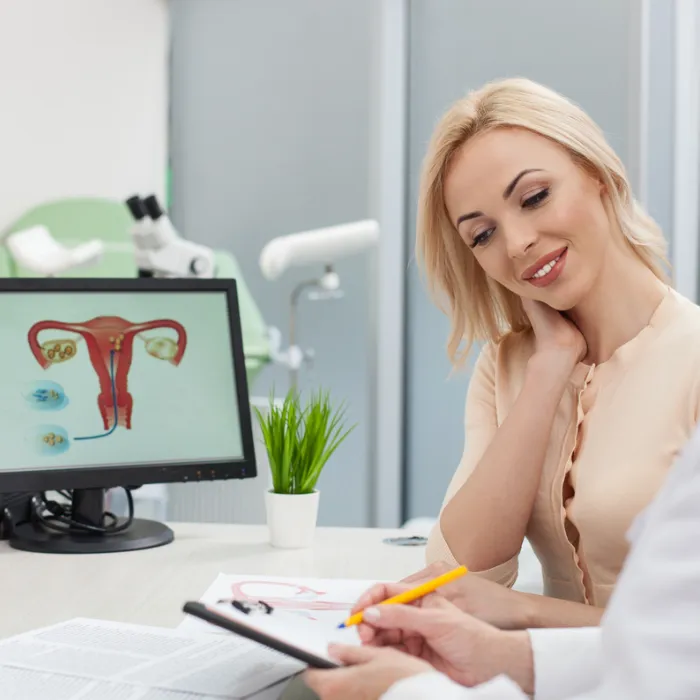Fibroids are the most common tumors of the uterus. They are benign and do not usually require therapy. Although fibroids do not usually pose an immediate threat to life, they can significantly impact the quality of life of those affected, mainly if they cause symptoms.
In the past, a significant number of hysterectomies were performed to remove the fibroid uterus, which in most cases was unjustified. Modern diagnostics, such as 3D ultrasound scanning and fibroid mapping, allow therapeutic or surgical intervention only in cases where it is specifically indicated.
It is essential to know that fibroids that spread into the uterine cavity can cause infertility or dysentery. If necessary, they can be removed relatively simply by endoscopic intrauterine surgery (resectoscope). Fibroid nodules that extend into the uterine musculature or to the outer surface of the uterus are rarely treated and can be removed laparoscopically.
At RMC, we are launching a Fibroid Outpatient Clinic to help women recognize this condition early and treat it appropriately. We believe that surgery is not the only way forward in many cases.
What are fibroids?
A fibroid develops from muscle and connective tissue cells in the uterus and can be located in different layers of the uterine wall. They can range in size from a few millimeters to tens of centimeters.
Who are the most vulnerable?
The exact cause of fibroids is not known, but there are several known risk factors:
- Age: Most common between 30-50 years.
- Genetic predisposition: a family history of accumulation increases the risk.
- Hormonal effects: Increased estrogen levels may favor fibroid growth.
- Lifestyle factors: Obesity, physical inactivity, and a diet low in fiber may also contribute to developing fibroids.
What symptoms can it cause?
Fibroids are often asymptomatic, but if they do cause symptoms, they may include:
- Abnormal menstrual bleeding (prolonged, heavy bleeding)
- Pain or pressure in the lower abdomen
- Urination problems due to pressure on the bladder (rare)
- Constipation due to pressure on the bowel (rare)
- Infertility or recurrent miscarriages
How can it be diagnosed? What treatment options are available?
The best way to diagnose fibroids is primarily by 3D ultrasound scanning. During the high-tech 3D ultrasound scan, we will recommend the most appropriate therapy for you.
Treatment for fibroids varies depending on the woman's age, symptoms, and the size and location of the tumors. These treatment procedures and the frequency of check-ups are discussed with our patients during their visits.
How can the Fibroids Outpatient Clinic help?
Our clinic's Fibroids Outpatient Clinic offers a full range of care for affected women:
- Personalized advice: considering the patient's needs and life situation.
- Regular check-ups: monitoring the growth of fibroids.
- Individualized treatment plans: suggesting medication, surgery, or other therapies.
- Support for family planning, especially for women planning to have children.
How can you register for the fibroids clinic?
You can register for our outpatient clinic by phone or by booking an appointment online.
Our related doctors
Any questions before booking an appointment?
If you are unsure which doctor to see or what examination you require, we are here to help!
Simply request a free callback from one of our colleagues, who will help you find the right specialist based on your specific issue.




